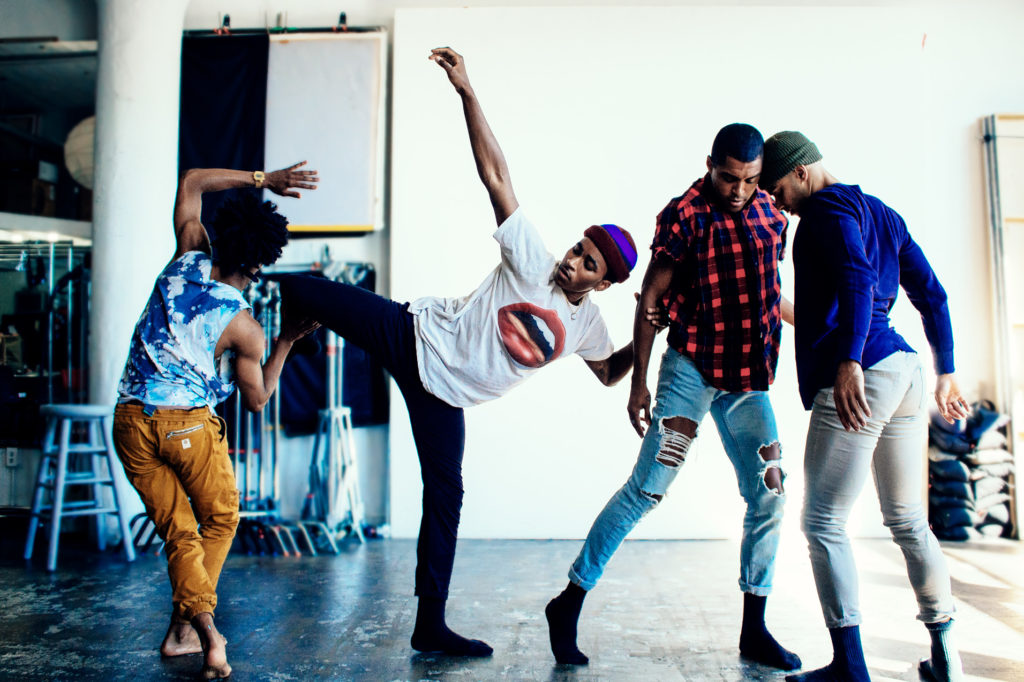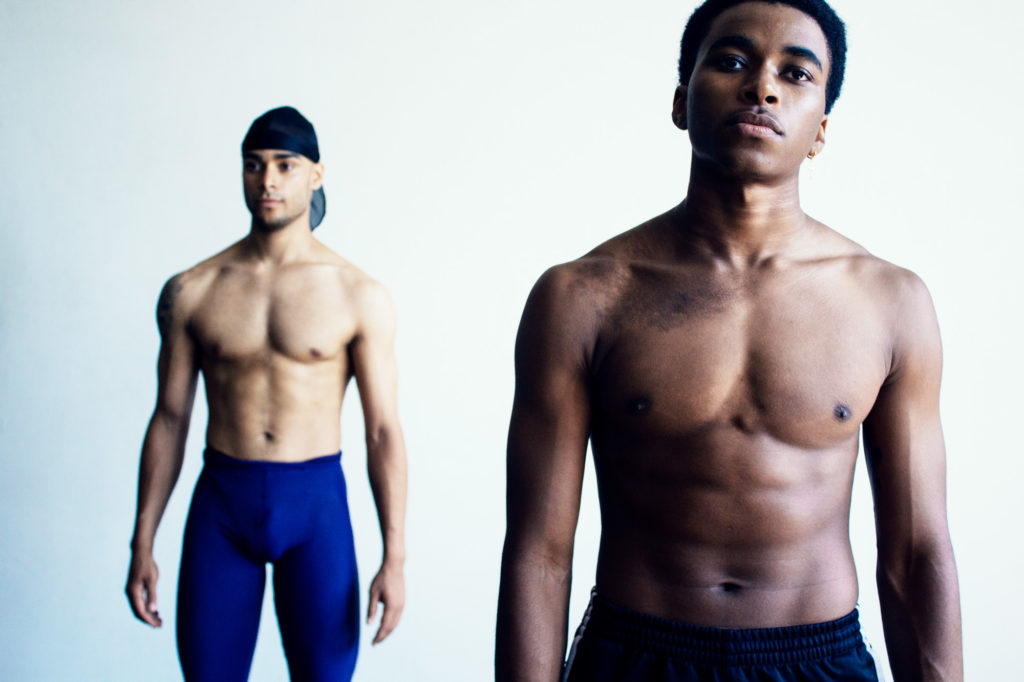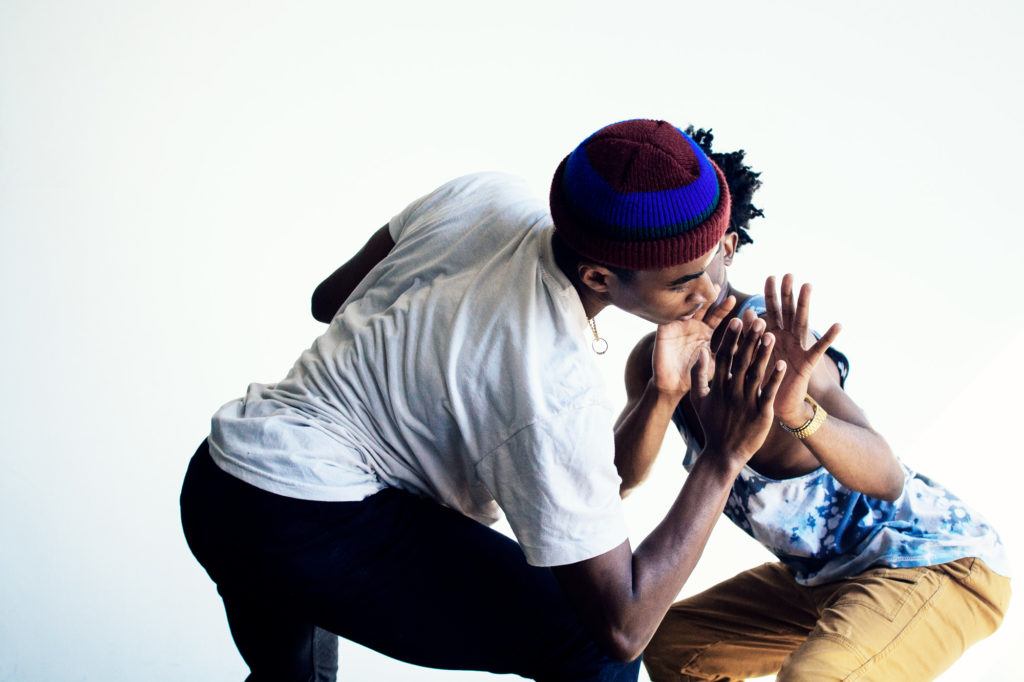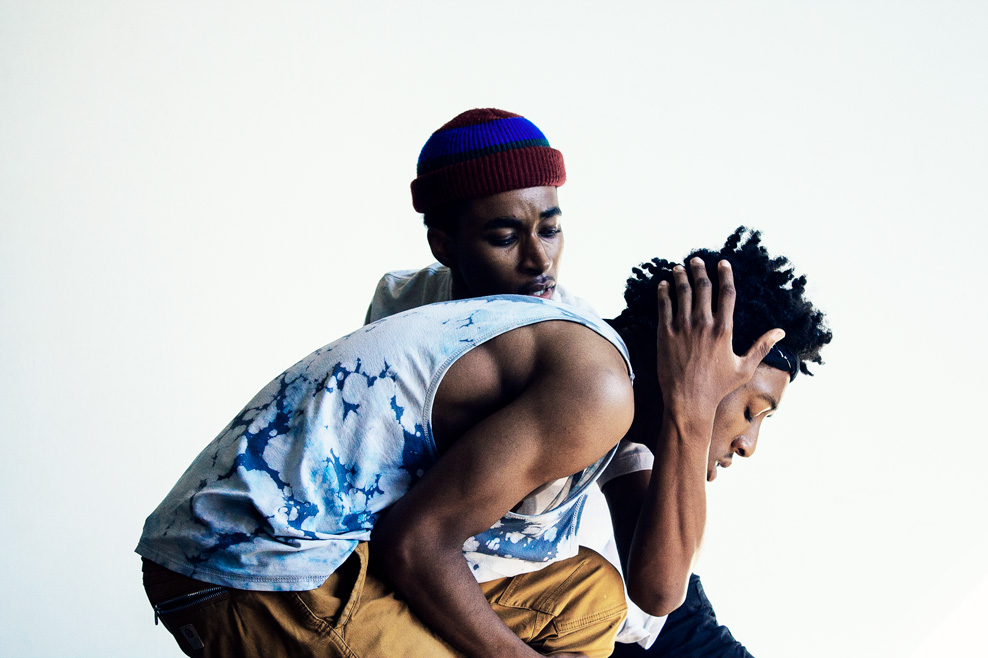Devon is an early-twentysomething DC-raised, New York City-made dancer who has a powerful message for the world: men have feelings, too.
An artivist in more ways than one–even if he doesn’t realize it yet–Devon encourages all men to dance. “Even if it’s just dancing at the club,” he says, “Close your eyes and just forget everybody is there. Internalize it all and then you’ll feel what the rest of us feel.”
How it feels to be connected to everyone around you. How it feels to be free to just be who you want to be. How it feels to know that no matter what is going on or how hard it hurts, there’s power in feeling, and allowing “dance to just move through you.” Why? Because dance is a saving grace that comforts, supports, liberates, and perhaps, most importantly, translates the things that can’t be explained with words: emotions.
Devon bravely shows us that #WhenMenDance they prove masculinity is not being afraid to be vulnerable, but being fearless enough to let the world in. So the healing can begin. For all of us.
Devon’s Full Story
I dance to tell my story. You know, there’s a lot of things I’ve been through that I can’t necessarily put into words. So, dance is just my way of getting that out. You see everything. You see all of me when I dance.
This is a great campaign to be a part of. It’s a great way to show that softer side–more vulnerable side–of a man. Not everything about being a man is being butch and grrrrr–manly-esque. We have softer sides to us, even though we don’t show it. It comes through our dancing. It is a very outer body experience.
Yeah, you have to do the steps. But at the end of the day, you’re bringing you to that choreography. Even if you’re doing your own thing on stage, it is you. You can’t really describe how dance feels. Sometimes I like to say that I don’t dance. Dance just moves through me, and I just kind of respond to it.
When I dance, I hope someone gets inspired the same way I got inspired. I want to inspire that little black boy or black girl up in the balcony that couldn’t afford the better seats to feel what I’m doing. To be like, “Wow, I want to do that.”
[Through dance], I’ve learned I can cry (laughs). Before I got into dance, I wasn’t a very emotional person. I mean, I’m still not a very expressive emotional person. But there was no emotion whatsoever coming from the background I do. You really couldn’t show any of that.
But dance showed me that I actually had more emotions than just anger. I knew there was sadness and happiness there, but I’ve found out that I can actually shed a tear on stage and it actually become a part of what I’m doing.
You have to know how to get in touch with those other things, other parts of yourself. There’s a reason why creative people are the way they are. They are in touch with something that is way deeper than what you see on the outside. The sooner you get into that, the more you understand that everything just flows out of you.
[Dance] has showed me that masculinity isn’t really a man thing, masculinity is an attitude. It is a presentation. Yeah, dance is showy. But at the end of the day, if you go on stage being masculine–the man that you are–you command the space, and it is a totally different feeling. Masculinity is not being afraid to be vulnerable and let the audience in.
I want people to know men have feelings too. I want people to understand that a lot of men aren’t always talkative or verbally express what we’re going through, there’s definitely another way for us to show you that.
I feel like every man should at least attempt at some point, even if it’s just dancing at the club. Close your eyes and just forget everybody is there. Internalize it all and then you’ll feel what the rest of us feel. You’ll understand it–the outer body experience–where you’re attuned and your body becomes the experience.
Connecting with other men a part of this campaign has been my favorite part. As well as the photo shoot I just did (laughs). Connecting with men a part of the same cause and feeling what it is like to be a part of the same unit. Not being afraid to be vulnerable in front of other men. It is liberating. Not being confined to any rules, being free and able to know that if you’re falling, someone will catch you. Knowing that if someone else is falling, they are trusting that you will be there. It’s being able to become one with everybody.
As a black man in dance, the odds are normally against you. Because of this, I want to prove the naysayers wrong. I want to inspire other people like me who might not have the best support system and want to dance. I want ones coming up with me and after me to know that it is possible. That things do get better and will work in your favor. You just have to be persistent and dedicated to your craft.



